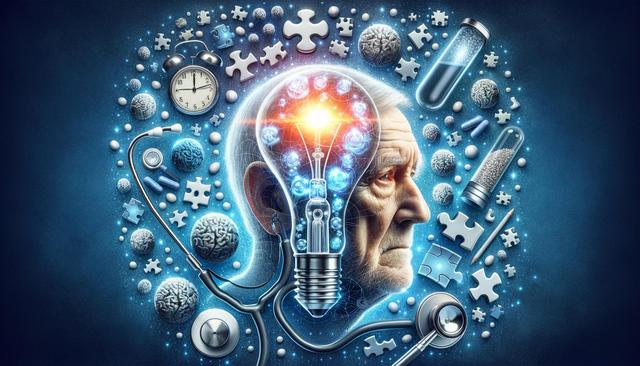What Is Dementia and How Does It Develop?
Dementia is not a single disease but a general term for a decline in cognitive ability severe enough to interfere with daily activities. It often results from damage to brain cells that interferes with their ability to communicate with each other. This disruption can affect thinking, behavior, and feelings. The most common type of dementia is Alzheimer’s disease, but there are several other forms, including vascular dementia, Lewy body dementia, and frontotemporal dementia. The development and progression of dementia vary depending on the cause and the individual. In most cases, the condition worsens over time, especially if left unmanaged.
Although aging is the greatest known risk factor, dementia is not a normal part of aging. Some people live well into their 90s and never show signs of dementia. Other potential contributing factors include genetics, lifestyle choices, and chronic health conditions such as hypertension, diabetes, and high cholesterol. Understanding the development of dementia can help individuals and caregivers better prepare for the challenges it may present.
Common Signs and Symptoms of Dementia
The symptoms of dementia can vary widely, but they generally include cognitive, psychological, and physical changes. The early signs are often subtle and may be mistaken for normal aging. However, as the condition progresses, the symptoms become more noticeable and disruptive. Here are some common symptoms to look out for:
- Memory loss that disrupts daily life, especially short-term memory
- Difficulty with problem-solving or planning tasks
- Confusion with time or place
- Difficulty finding the right words or following conversations
- Changes in mood or personality, including increased anxiety or depression
- Withdrawal from social activities and hobbies
Recognizing these signs early can lead to prompt medical evaluation and potentially slow the progression through appropriate interventions. It’s important to note that not everyone experiences all symptoms, and they may appear in different combinations and stages.
Diagnosing Dementia: What to Expect
Diagnosing dementia involves a comprehensive evaluation that typically includes a medical history review, physical examination, neurological tests, and cognitive assessments. Physicians may also order brain imaging tests such as an MRI or CT scan to look for signs of stroke, tumors, or other conditions that might explain the symptoms. Blood tests can help rule out vitamin deficiencies or thyroid problems that may mimic dementia-like symptoms.
During the diagnostic process, doctors often use standardized tools to assess cognitive function. These include memory, problem-solving, attention, language, and visual-spatial skills. Input from family members or caregivers can also be invaluable in understanding changes in behavior or personality that the individual may not recognize.
Early diagnosis is crucial, as it provides a better chance of benefiting from available treatments, allows for planning future care, and gives individuals more time to make important life decisions. It also opens the door to support services for both patients and caregivers.
Treatment Options and Management Strategies
While there is currently no cure for dementia, several treatment options can help manage symptoms and improve quality of life. Treatments generally fall into two categories: medical and non-medical interventions. Medications may be prescribed to help with memory loss, confusion, and behavioral issues, although their effectiveness can vary from person to person. These medications may help slow the progression of symptoms in some individuals.
Non-medical strategies play a significant role in dementia care. These include:
- Cognitive stimulation therapy to enhance memory and problem-solving skills
- Occupational therapy to improve daily function and safety
- Regular physical activity to support overall brain health
- Structured routines to reduce confusion and anxiety
- Healthy diet rich in fruits, vegetables, and whole grains
Support for caregivers is also essential, as they play a central role in the daily management of dementia. Respite care, support groups, and professional counseling can provide emotional and practical assistance, improving outcomes for both the person with dementia and their caregivers.
Living with Dementia: Coping and Support
Receiving a dementia diagnosis can be overwhelming, but with appropriate support, individuals can continue to lead meaningful lives. Adapting the living environment to make it safer and more comfortable is a key step. This might include installing grab bars, using labels or signs, and minimizing clutter to reduce falls and confusion.
Emotional support is just as important as physical care. Staying socially connected helps reduce feelings of isolation and depression. Many communities offer day programs, memory cafes, and social activities designed specifically for people with dementia. These programs provide both stimulation and companionship.
Family members and caregivers should educate themselves about dementia to better understand what their loved one is experiencing. Patience, empathy, and clear communication are vital. It’s also important to plan ahead for legal, financial, and end-of-life decisions while the person with dementia can still participate in the process.
Technology can also offer assistance, from medication reminders to GPS tracking for individuals who may wander. Leveraging available tools and support systems can help manage the condition more effectively and improve the overall quality of life for everyone involved.


